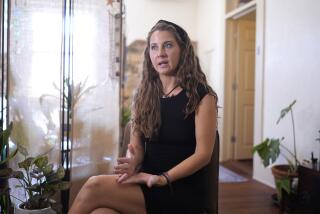Woman Who Shot Self Found Not Liable for Fetus’ Death
TALLAHASSEE, Fla. — A pregnant woman can’t be charged with murder or manslaughter for shooting herself in the abdomen to kill her fetus, Florida’s Supreme Court ruled Thursday.
The court noted that previous opinions by other courts have held that a third party, but not the pregnant woman, can be held criminally liable for causing injury or death to a fetus.
In contrast, South Carolina’s Supreme Court this week upheld a woman’s conviction for taking drugs while pregnant, following up on its finding that a viable fetus is covered by the state’s child abuse laws.
The Florida court had ruled in the opposite direction on the drug issue.
Florida lawmakers haven’t passed any statutes overriding the “common-law doctrine of immunity for the pregnant woman,” the Supreme Court wrote Thursday.
The Florida case began in St. Petersburg in March 1994 when 19-year-old Kawana Ashley was turned away from an abortion clinic because she didn’t have enough money. She was a little more than six months’ pregnant.
Single, unemployed and already the mother of a toddler, Ashley put a pillow over her abdomen and shot herself with a .22-caliber pistol.
She underwent an emergency Caesarean section and doctors delivered a 2-pound, 2-ounce girl who had a bullet wound to the wrist. The baby, named Brittany, died two weeks later of organ failure.
Ashley told officers she had shot herself “to hurt the baby” but later denied trying to kill her and said the gun went off accidentally.
Prosecutors charged Ashley with third-degree felony murder and manslaughter, both with possible 15-year sentences.
The murder charge was dismissed. The state and Ashley, represented by the Center for Reproductive Law and Policy in New York, asked that the state Supreme Court consider the case. The state wanted the murder charge reinstated; Ashley wanted the manslaughter charge dismissed.
In the South Carolina case, the high court voted 3-2 to uphold the conviction of Cornelia Whitner, who gave birth to a baby boy with cocaine in his blood.
Whitner, whose son is living with relatives, was sentenced in 1992 to eight years in prison for child neglect. A judge freed her 19 months later, saying child abuse laws do not apply to prenatal actions.
More to Read
Sign up for Essential California
The most important California stories and recommendations in your inbox every morning.
You may occasionally receive promotional content from the Los Angeles Times.










